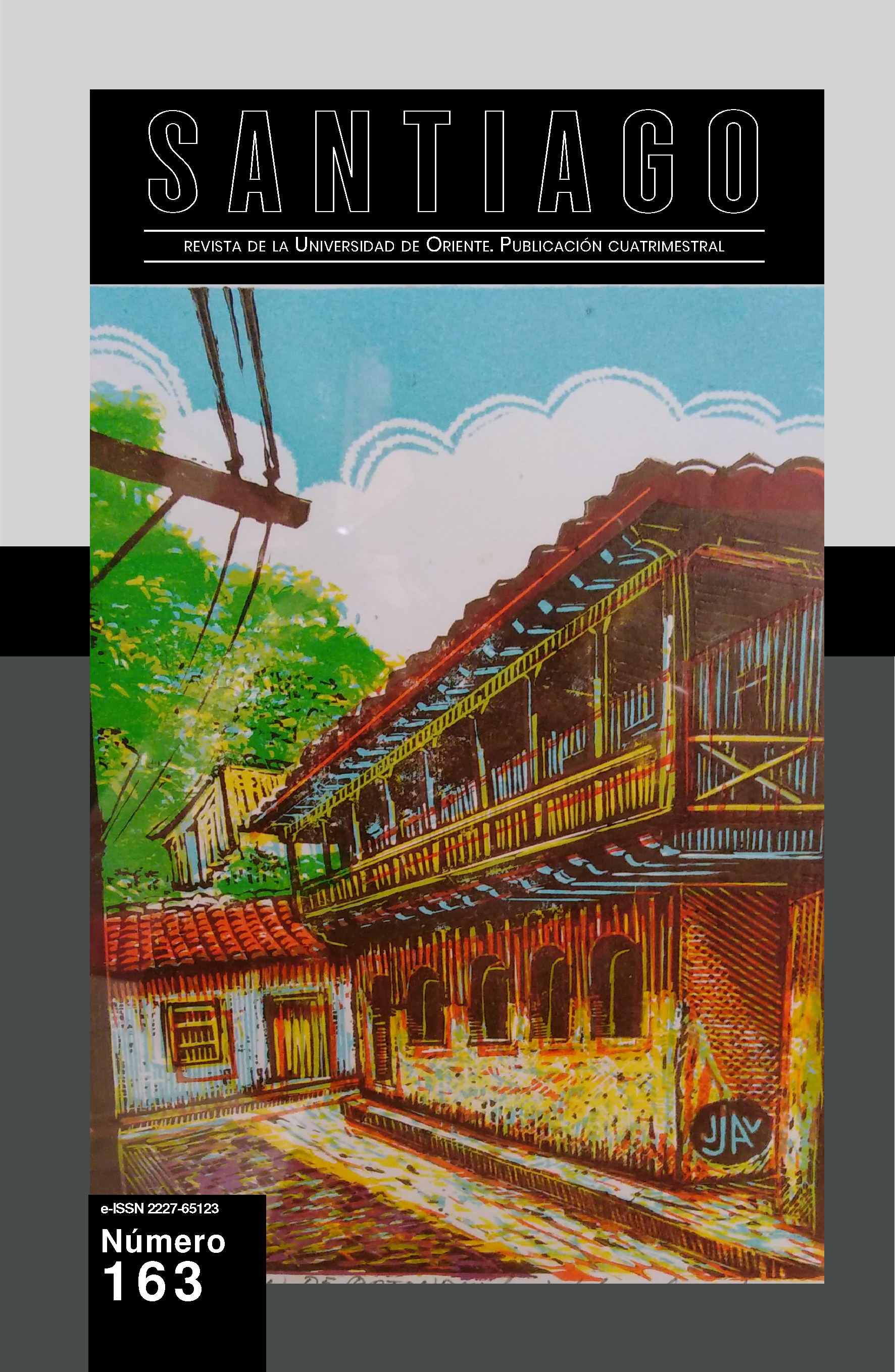The information technologies to strengthen the tourism value chain of Huanta in Perú
Keywords:
web system; mobile application; videogame; tourist directory; Huanta, tourism.Abstract
The objective of this research was to consolidate the tourism value chain through the implementation of information technologies in the province of Huanta, Ayacucho region, Peru. The research is applied with a pure experimental design. It resulted in the generation of the web system of the tourist directory of Huanta, mobile application of the directory and 2D video game inspired by tourist sites; these tools are an ally and even more so in a context of pandemic to consolidate the articulation between the actors of the tourism value chain, providing accurate and updated information to the visitor or tourist through the internet and digital channels.
References
Bernal, M., y Rodríguez, D. (2019). Las tecnologías de la información y comunicación
como factor de innovación y competitividad empresarial.
Scientia et Technica , 24(1), 84–96. https://www.redalyc.org/articulo.
oa?id=84959429009
Castello, V. (2020). Desafíos y oportunidades para el turismo en el marco de
la pandemia COVID-19. Cuadernos de Política Exterior Argentina,
–118. https://dialnet.unirioja.es/descarga/articulo/7497247.pdf
Cepeda, J., y Domingo, M. (2021). Deep learning and Internet of Things for
tourist attraction recommendations in smart cities. Neural Computing and
Applications, 21(1), 21–38. https://doi.org/10.1007/s00521-021-06872-0
Cespedes, D. (2014). Desarrollo de un videojuego con realidad aumentada
para fortalecer el turismo en la ciudad de Popayán. http://repository.
ucc.edu.co/bitstream/20.500.12494/35658/1/2021_Desarrollo_Videojuego_
Turismo.pdf
Erol, I., Neuhofer, I., Dogru, T., Oztel, A., Searcy, C., y Yorulmaz, A. (2022).
Improving sustainability in the tourism industry through blockchain technology:
Challenges and opportunities. Tourism Management, 93(2).
Farias, I. (2021). Licenciatura en Turismo Trabajo final de práctica profesional.
http://ri.unsam.edu.ar/bitstream/123456789/1528/1/TFPP%20
EEYN%202021%20FIJ.pdf
Guzmán, J., y Chire, G. (2019). Evaluación de la cadena de valor del cacao-
The obroma cacao l. peruano. Enfoque UTE, 10(1), 97–116. https://
doi.org/10.29019/ENFOQUEUTE.V10N1.339
Kalna, T., Ovadenko, V., Heraimovych, V., Zbarska, A., Barylovych, O.,
y Reznik, N. (2023). The Role of Information Technologies in Access
to Rural Tourism Education. Lecture Notes in Networks and
Systems, 488(1), 739–747. https://www-scopus-com.are.uab.cat/
record/display.uri?eid=2-s2.0-85135076611&origin=resultslist&sort=
plf-f&src=s&st1=tourism+information+technology&sid=412b-
de600b34213f56376d0c250183&sot=b&sdt=b&sl=45&s=TITLE-
ABS-KEY%28tourism+information+technology%29&relpos=1&citeCnt=
&searchTerm=
Lemos, E., Henrique, E., Alves, M., y Nakatani, M. (2018). Las relaciones
entre la información turística y las tecnologías de la información
y la comunicación. Estudios y Perspectivas En Turismo, 27(3),18–34. http://www.scielo.org.ar/scielo.php?script=sci_arttext&pid=
S1851-17322018000300005
Liyushiana, S., Sibarani, R., y Purwoko, A. (2022). Cultural-Heritage Virtual
Tour for Tourism Recovery Post COVID-19: A Design and Evaluation.
International Journal of Design and Nature and Ecodynamics,
(3), 447–451.
Obłąkowska, K. (2022). The tourism sector in Poland on the eve of
and in the face of the COVID-19 pandemic. Sport i Turystyka,
(2), 117–137. https://www-scopus-com.are.uab.cat/
record/display.uri?eid=2-s2.0-85134932395&origin=resultslist&
sort=plf-f&src=s&st1=pandemic+tourist+attractions&sid=f07b-
fcc63be4c654785cc2638dc73ad&sot=b&sdt=b&sl=43&s=TITLE-
ABS-KEY%28pandemic+tourist+attractions%29&relpos=4&citeCnt=
&searchTerm=
Padilla, A., Lluglla, R., Álvarez, R., y Ramírez, B. (2021). Crisis y reactivación
turística en tiempos de covid-19. Cámara de turismo provincia de Pastaza.
Revista Universidad y Sociedad, 13(3), 426–434. http://scielo.sld.
cu/scielo.php?script=sci_arttext&pid=S2218-36202021000300426&lng=
es&nrm=iso&tlng=es
Pérez, J. (2021). Aplicación de nuevas tecnologías en el ámbito turístico: principales
herramientas y oportunidades de desarrollo. https://dehesa.
unex.es/bitstream/10662/12443/1/978-84-09-25215-2_385.pdf
Qingqing, L., y Qing, W. (2023). Computer-Aided Internet of Things System
Structure for Urban Tourist Attractions. Computer-Aided Design and
Applications, 20(2), 131–142.
Sánchez, M., y Fernández, M. (2018). Revisión teórica de la relevancia de
las nuevas tecnologías de la comunicación (TIC) en el sector turístico.
TURYDES, 11(24), 31. https://dialnet.unirioja.es/servlet/articulo?codigo=
&info=resumen&idioma=ENG
Downloads
Published
Issue
Section
License
Copyright (c) 2024 Edgar Gutiérrez-Gómez

This work is licensed under a Creative Commons Attribution-NonCommercial-NoDerivatives 4.0 International License.
CC Reconocimiento-NoComercial-SinObrasDerivadas 4.0


.jpg)

_de_logo.jpg)












